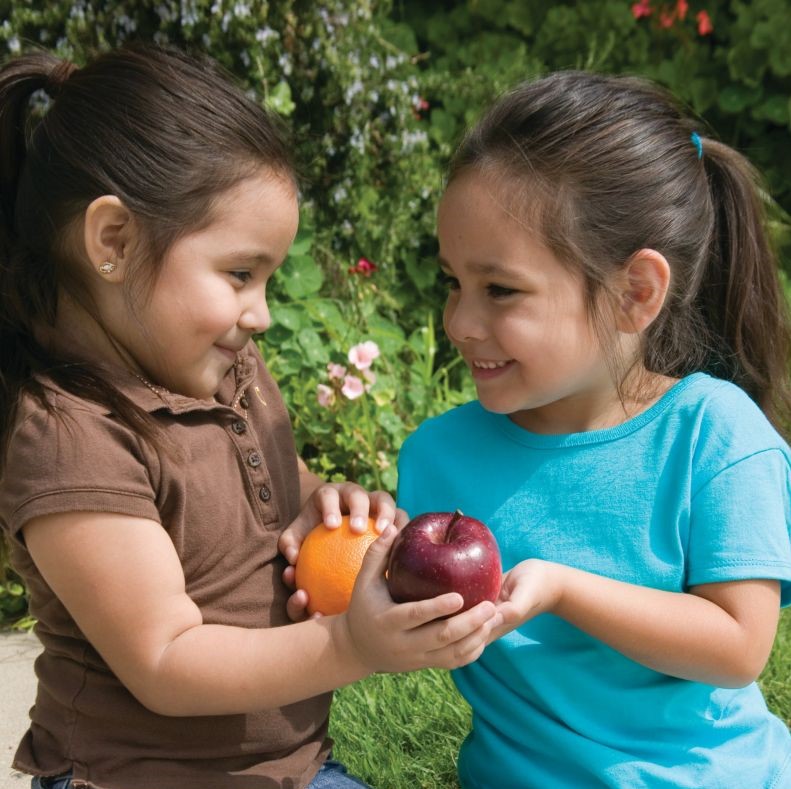By Daniela Pineda, Ph.D.
In this digital society, we share ideas freely on Pinterest, give our opinions on products online and learn from “how-to” videos on YouTube. But once we step foot in the office we so often fail to follow the same openness in sharing and learning what works and what doesn’t.
I believe in the power of being #OpenForGood, or sharing knowledge to improve philanthropic effectiveness and to improve organizationally. At First 5 LA, it’s central to our mission to create more opportunities and better outcomes for young children.
That’s why I was delighted recently to share examples for a new “how-to” guide, as part of Foundation Center’s #OpenForGood movement. Open for Good: Knowledge Sharing to Strengthen Grantmaking provides tips and resources, including strategies for knowledge sharing. Everyone benefits when organizations share practices to enhance organizational capacity and culture, and by understanding how to overcome hurdles to sharing knowledge.
As a public entity, First 5 LA is uniquely positioned to share knowledge within our field and beyond. Our mandate to be transparent serves as a powerful launch pad for this. For example, an important aspect of our work includes amplifying the voices and perspective of parents to policy leaders and lawmakers and foster relevant and effective conversations to improve outcomes for kids.
Sharing Sharpens Your Thinking
No matter the type of organization – foundation, nonprofit, government or business – we all can achieve more collectively and individually by sharing information.
Sharing information about what has worked for you, stumbling blocks you’ve encountered and – perhaps most importantly – being open to learning learn from others, sharpens your thinking, benefits the field, and helps advance your goals to benefit those you serve.
Becoming a more collaborative culture, both inside and outside of our own organizations, isn’t as simple as it may sound. We must be mindful of the roadblocks that tend to exist in most organizations and learn to navigate them. These can include egos and lack of humility; competition for resources; lack of incentives to share; and a lack of awareness of what information is being shared and what outcomes it is producing.
But failing to make it part of your job to go find out what other people are doing amounts to lost opportunity, lost time and lost resources. At a minimum, we can feel empowered by the simple knowledge that we aren’t the only one dealing with the problems we face in our jobs. In a best case scenario, we can use that information to do our jobs better.
Sharing Begets Sharing
The truth is, great ideas can come from anywhere. A conversation on a commuter train, a session at a Conference. A search engine. Curious if others were grappling with similar issues about how to effectively evaluate the type of place-based work we do, I recently made use of philanthropy’s impressive open online repositories such as Foundation Center’s Issue Lab, to search for answers.
Indeed, my search led to several pieces on lessons learned from funders of place-based work. Beyond reading and learning from the insight gleaned, I was able to connect with one of the authors. Based on this connection, I learned some pitfalls and successful strategies that we put to use at First 5 LA.
This concept of reaching out to others is simple, and yet so few make the time to do it.
Sharing Benefits the Field
At a more global level, if you want to make an impact on society and change things for the better, you must share what you know, and be willing to adjust your approach based on what you learn from others who share.
This not only helps our organization in our mission, but it sets an example for other likeminded organizations to open their viewpoints to sharing their successes and failures.
Sharing information and outcomes is essential to being influencers in our areas of expertise, and learning from others is essential to being assets within our fields.
Sharing Is a Skill
These sharing efforts should permeate your organization, far beyond the corporate suites. Leaders must lead by example and encourage staff to see themselves as gatherers – and contributors – of knowledge to their fields.
Ultimately, learning to share information is a skill. To do this, and to glean the best information from data, includes sharing it with others both inside your organization and out.
Certainly we feel pride in our work, and it is not always easy to let others benefit from what we’ve had to learn through hard work and, quite often, failure. But our work is not ultimately about a singular “us.” It is about huddling under the same umbrella in stormy weather, and basking together in the sunshine, for those who need us the most. Those we serve.
*An expanded version of this post was originally published on the Foundation Center’s Transparency Talk blog as part of their Glasspockets project.
Daniela Pineda, Ph.D., is Vice President of Integration and Learning at First 5 LA, an independent public agency created by voters to advocate for programs and polices benefiting young children.








